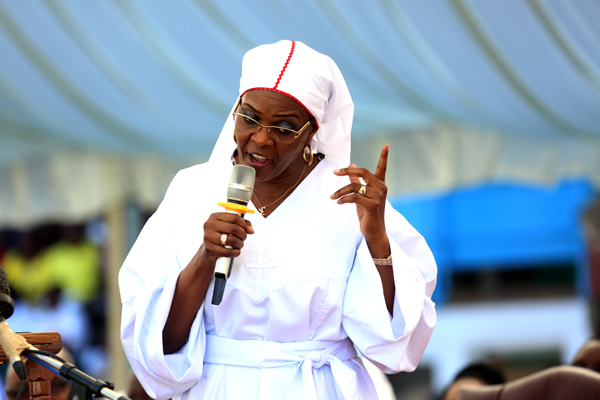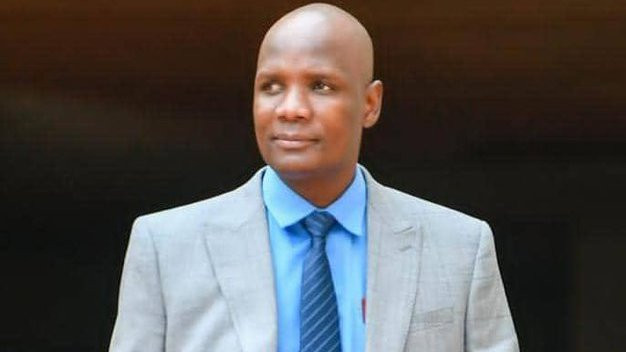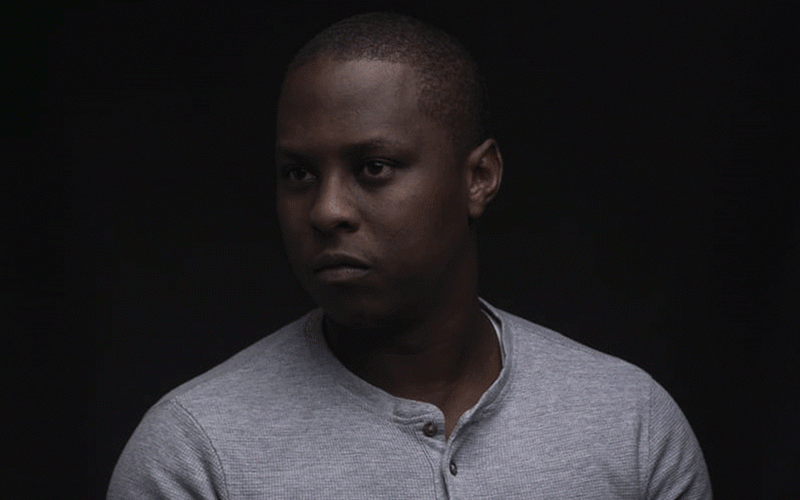
It could easily have been entitled The end of an error. A 37-year-old error. That is how long President Robert Mugabe has ruled Zimbabwe.
By Alex Magaisa
The end is nigh. After surviving so many challenges from courageous opponents, it was his former allies who in the end administered the final assault, leaving him in power but effectively without power.
It’s a coup in all but name. The soldiers have effectively taken over control of the Zimbabwean state. When you see a man in military fatigues reading news on national television, you know the military has taken over. It’s a show of control. So in the end, it all came down to who between the competitors in the succession race had the guns.
The statement issued in the wake of the military takeover is typically presented in camouflage. It gives the impression that Mugabe is still the Head of State. But this is a façade designed to conceal the actual takeover that has happened.
A frog might be given many different descriptions but it does not change the fact that it is a frog. He might still be the de jure leader, but de facto control now rests with the military. They are the ones directing the affairs of the State and at best Mugabe is now a lame duck President.
There is no doubt that this marks the end of an era. Mugabe has ruled for 37 years and in recent years it increasingly seemed like he would rule forever. Now though the end is nigh — the military have kept him on to enable their elder Statesman a dignified exit, which will happen soon. However, the demise of Mugabe’s rule will not be mourned.
Instead, it will be celebrated. This celebration is not because Zimbabweans prefer military rule, no. It is simply demonstrates how Mugabe’s long rule had become almost universally despised, even within his own party, despite appearances to the contrary. His rule generated many opponents both at home and abroad. But no one seemed to have a clue how to get rid of him. The opposition had tried everything, to no avail. The majority of Zimbabweans had become despondent and frustrated. For many he simply had to go, by any means necessary.
- Chamisa under fire over US$120K donation
- Mavhunga puts DeMbare into Chibuku quarterfinals
- Pension funds bet on Cabora Bassa oilfields
- Councils defy govt fire tender directive
Keep Reading
The last straw for most people within and outside Zanu PF was the increasingly evident possibility that Mugabe’s wife, First Lady Grace was well on course to succeed him. That would have created a Mugabe dynasty. Many found the idea of a Mugabe dynasty extremely repulsive. There might have been a residue of sympathy for Mugabe, but many were repulsed by Grace’s brand of politics. She was brash and condescending, with a penchant for humiliating adults in public. Many dreaded the prospect of her presidency.
Another factor that made Grace highly-unpopular was her arrogance, greed and willingness to publicly defend allies who were accused of corruption. She was not shy to show her power, although she was repeatedly warned that it was borrowed power, the strength of which depended upon her husband.
She had taken to a tendency to grab whatever assets she wanted and to do as she pleased. This habit of accumulation and profligacy by her family irked many Zimbabweans struggling to make ends meet. The embarrassing episode in South Africa, when she beat up a young lady with an electric cable but got away with it after invoking diplomatic immunity was just one of many incidents that cast her in bad light.
But it was standing in the way of former Vice-President Emmerson Mnangagwa’s ambitions that proved to be her undoing. After waiting in the wings for nearly three decades and a heavy investment in loyalty to Mugabe, Mnangagwa’s exit was humiliating and embarrassing particularly because it was authored by Grace and her allies.
Moyo in particular was a perennial thorn in the flesh, using social media to harangue Mnangagwa. It was the sacking of Mnangagwa and the threat to purge members of his faction from Zanu PF that proved to be the straw that broke the camel’s back.
At that point, the Lacoste faction, as Mnangagwa’s faction was known, chose to activate the nuclear option, by drawing on its alliance with the military. It had always been suggested that Mnangagwa’s strength lay in that association with the military.
But, as he succumbed so pitifully to the might of Mugabe’s power, it appeared as if this alleged strength was built on a myth — that he was no more than a small man casting a large shadow on the wall, to use Lord Varys’ words in the epic television drama Game of Thrones. In the end however, it was the military that came to his defence and as events show, confirming that the power was real and no myth.
What is shocking perhaps is the manner in which Mugabe has collapsed, seemingly without offering much resistance. The Zanu PF statement issued after Defence Forces Commander General Constantino Chiwenga’s stern rebuke the day before was feeble.
Having successfully monopolised power for 37 years, one would have thought Mugabe had a solid plan, including anticipating the military backlash from the sacking of his Vice-President. But he was showing uncharacteristic panic in recent weeks.
Even the firing of Mnangagwa seemed to have been done in panic. It was an emotional decision reached at the spur of the moment, after seeing Mnangagwa receive popular support at a rally where his wife was booed. He immediately announced at the rally that he was ready to sack him and he did so just two days later.
The new men in charge are keen to insist that this is not a military takeover. It does not diminish the fact that it is. They are merely choosing their words carefully because they know a coup is a hard sell to the region and the rest of the world. They have to retain the appearance of civilian authority but the truth is that Mugabe is now no more than a titular figure.
Also, while they are obviously appalled by his wife’s behaviour and attitude towards them, the military and war veterans still retain residual respect for Mugabe, the veteran leader who has led them since their war days in the seventies. They may want to see him retire but they do not want to mistreat him. A veteran of the first generation of African nationalists, he still commands respect among his African peers. The new rulers know that mistreating him would be regarded in poor light. Besides, they probably regard him not as the author of their problems, but also as a victim of the machinations of his ambitious wife and the G40 faction.
What will happen now?
The statement from the military was thin on detail. It tried to do what coup statements do: Calm things down and promise a return to normal life. How and when that will be remains vague. In some ways, this was a clash between generations: the liberation generation, which claims its source of authority and legitimacy from the liberation struggle and a generation that challenged this claim. The liberation generation has triumphed by the law of the gun, demonstrating once again the enduring nature of the liberation war narrative in Zimbabwean politics. It served Mugabe once, and now it is serving his subordinates. It suggests that the liberation generation will monopolise power for a long time to come, at least for as long as they live, and will not hesitate to use the gun to defend that monopoly on power.
In the immediate term, it will be a glorious return for Mnangagwa after what seemed to be an ignominious exit. After what seemed to be the end of a long career, he is now on course to fulfil his destiny and lead Zimbabwe. He was for so long the proverbial water-carrier for Mugabe. Now though he will have the liberty to choose his own water-carriers.
Yet they too must know that like Mugabe, they have created a monster that could haunt them in future. History shows that once the military has tasted power, it will develop an appetite for more of the same in future. The current generals will vacate office to assume political power, but from now on they must always watch their backs because they have shown their subordinates the possibilities that the gun avails.
As for G40, their fortunes have dipped in dramatic fashion. There were lessons from history, such as the fate that befell Jiang Qing, the wife of Chairman Mao and her allies known as the Gang of Four. The parallels are uncanny. They will now be at the mercy of the new military authorities. Grace may yet be spared, but only out of respect for Mugabe. As for Mnangagwa, to extend the Chinese comparison, could he be the Deng of Zimbabwe who, after being thrown out of government once, returned after the demise of Mao and ushered a new era for the country? That remains to be seen but he seems to have the favour of both China and the West and that might usher a restoration in broken relations.
Zimbabwe is due to hold elections next year. That may now be postponed as the country finds its feet after this radical disturbance to the constitutional order. Meanwhile, some “transitional authority” made up of diverse elements, including the opposition — ostensibly to fix and take the country forward — may be patched up to run the country, with the promise to prepare for democratic elections in the near future.
The BSR did say some weeks ago that if the succession race were a boxing match, Lacoste were so far behind on points that they needed a knockout blow. This, they seem to have delivered, albeit in the very dying moments. It’s a new chapter for Zimbabwe, which for the first time must now prepare for life without Mugabe at the helm. He now sits on the throne, but without power. It is unlikely he will stay there for much longer. It’s truly the end of an era.
lThis article was first published on https://www.bigsr.co.uk







